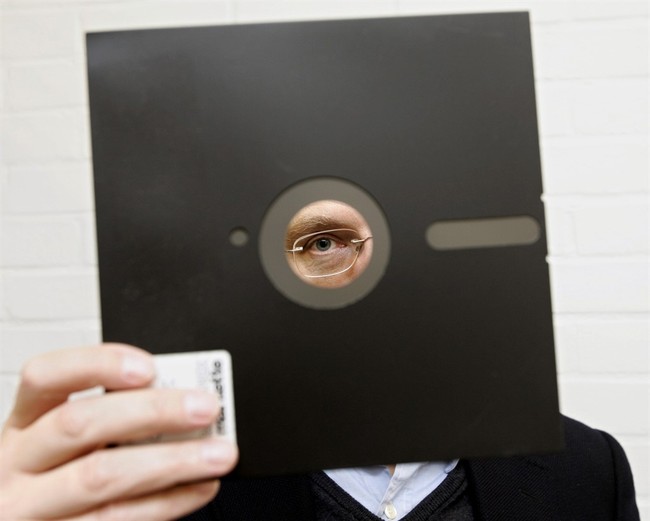
In 1979, when I was entering my senior year of high school, I was rather amazed when a buddy of mine told me that our little small-town, farm country school had gotten a computer terminal. Note I don’t say “computer,” as the unit was not a stand-alone device. Instead, it consisted of a tiny green-text screen, a keyboard, and a modem. One connected the terminal to the mainframe computer down at the University of Northern Iowa with the modem, which required taking the handset off the old desktop rotary-dial phone that sat on the desk next to the terminal, placing it in a special cradle, then dialing up the number of the main machine down at the university. With a bit of luck, you’d have a successful connection, and my rather tech-savvy buddy (who later had a career in computer animation and graphic design) showed me how to type in very simple programs.
For a country kid whose experience with computers up to that point was limited to hearing Captain James T. Kirk talk to the Enterprises’ rather sultry-sounding main computer, that was pretty amazing.
In 1995, I bought my first PC. It was a beast – a blazing-hot IBM 486/66 running Windows 3.0, with a whopping 1 megabyte of RAM, a huge 120-megabyte hard drive, and a 3.5″ floppy disk drive. It wasn’t long after that machine went obsolete that floppy drives also went the way of the dodo, and these days we’re accustomed to solid-state hard drives with capacities in terabytes, cloud storage, and all that goes with the modern technological age.
This makes it rather baffling that Japan, that bastion of high-tech, is only now doing away with the honest old 3/5″ floppy disk.
Japan’s government has declared victory in a 20-year war to eliminate the widespread use of floppy disks.
The move is a key milestone in the Japanese government’s painstaking efforts to modernise its old-school office practices, with fax machines still ubiquitous in many departments.
“We have won the war on floppy disks on June 28!” Taro Kono, the digital minister, who has been vocal about wiping out fax machines and other analogue technology in government, said on Wednesday.
This is a little baffling, but it’s not just Japan that has this issue; I have no idea what kind of computers are on ships in the United States Navy nowadays, but back in my time in Uncle Sam’s colors, I ran into a Navy guy while on a flight from someplace to someplace else, and we ended trading war stories for sea stories and talking shop. He told me that at that time (late ’80s), the Navy was still running 10-15-year-old computer tech for things like radars and fire control, in part because things like missile seeker heads were not easily adapted to talk to newer computers. I do sincerely hope this is no longer the case.
See Related: Long March Through Venture Capital: The Democrat Technology Ecosystem
Dark Tech, Dark Harvest: Categorizing the Democrats’ Hidden Tech Network
Here’s a bit of information technology that goes back centuries in Japan, though, that I kind of hope they don’t give up completely.
While Japan is typically regarded as a high-tech modern powerhouse, its government departments have long lagged behind, as reflected in its widespread dependence on 1980s-style technology.
Its much-loved fax machines appear to be next in the firing line, along with personal hand-stamping seals known as “hanko”, which are still widely used to authenticate documents, in both public and private sectors.
The first time I worked in the Land of the Rising Sun, I was there on-site at a Shiga Prefecture company for about seven months. They had an interpreter work with a guy who made hanko – by hand – and had one made for me with what they could approximate for my name in Kanji. I don’t know how accurate it was, but I was glad to have it and used it on memos and so forth. These are a neat little piece of Japanese culture, and while the government may give up their use, I hope Japan, in general, never does.
Computer technology is still advancing rapidly, although it doesn’t seem to be growing at the breakneck pace of the ’90s when a spanking-new, state-of-the-art computer was obsolete by the time you carried it out of the store and into the parking lot. But we’re still seeing tech grow, we’re still seeing the Information Revolution unfold, and we can expect that floppy disks or no, this will continue for some time to come.
Now, about that holodeck I was promised…
